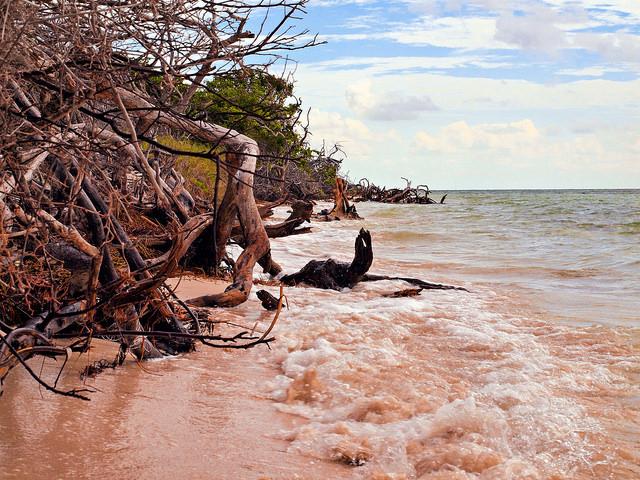
The beat
Netanyahu in trouble
Following a year-long investigation, Israeli police have recommended that Prime Minister Benjamin Netanyahu be charged with bribery. Netanyahu has been under investigation for accepting gifts worth more than AU$356,000 from businessmen, including Australian billionaire James Packer. The gifts included champagne, cigars and jewellery. Netanyahu is also accused of ‘bribery, fraud and breach of trust by the Prime Minister’. He has refused to resign, stating that he intended to ‘continue to lead Israel responsibly and faithfully’.
Bridge of spies
On a snowy bridge on their border, Russia and Estonia have performed a prisoner swap reminiscent of the Cold War. Estonia exchanged convicted Russian spy Artem Zinchenko for an imprisoned Estonian businessman named Raivo Susi. Susi was arrested in Moscow last year, charged with espionage and sentenced to 12 years in prison. Zinchenko was serving five years for spying on behalf of Russian military intelligence. Buzzfeed News has a detailed write-up of Zinchenko’s recruitment.
South African troops under investigation
South African peacekeeping troops deployed to the Democratic Republic of Congo have been accused of torture and sexual exploitation. One thousand South African troops are currently deployed to the volatile North Kivu region. The UN reported that three allegations of sexual exploitation have been received ‘and involve adult victims, one of which includes a paternity and child support claim’. South Africa dispatched a team of military lawyers and investigators to examine the claims.
CT scan
TTP deputy leader killed
The Pakistani Taliban (TTP) confirmed that its deputy leader, Khalid Mehsud, was killed last week. TTP attributed his death to a US drone strike, but Pakistani intelligence and military sources have provided conflicting reports. Mehsud is the most important TTP leader to be killed since the August 2016 drone strike that killed Hafiz Saeed Khan, leader of Islamic State in Pakistan and Afghanistan. Mehsud took control of the TTP in 2014 and was added to the US list of designated global terrorists in the same year. This week, the US also proposed adding Pakistan to a global terrorist-financing watchlist.
Sister act
The sister of the international student who stabbed her Melbourne homestay host last week attacked a police officer in Bangladesh earlier this week. Both sisters reportedly shouted ‘Allahu akbar’ before their attacks, and allegedly have ties to the terror group Neo-JMB, an Islamic State–inspired group. Islamic State has increasingly encouraged women to fight, and has claimed responsibility for this attack.
Church attack in Indonesia
A man wielding a samurai sword attacked churchgoers in Yogyakarta, Indonesia, on Sunday. He wounded four before being shot. While his motive remains unclear, the national police chief noted that the assailant had attempted to travel to Syria, and that there were strong indications that he had been exposed to violent radicalism.
Checkpoint
Britain’s borders unprepared for Brexit
A new parliamentary report lambastes Britain’s post-Brexit immigration planning. The Home Office intends to create two new registration systems, extending ‘settled status’ to EU citizens who currently reside in the UK, but excluding EU citizens who arrive during the two-year transition period that begins in March 2019. The House of Commons Home Affairs Committee declared the two-fold system unfeasible. Adding to the confusion, the government again delayed the release of its immigration white paper until October.
Libya clamps down on fuel smuggling
Libya’s Attorney General has issued arrest warrants for 144 fuel smugglers in the country’s western provinces. Neighbouring Tunisia has increased fuel prices in an effort to rein in its budget deficit. In response, people cross into Libya and smuggle back large quantities of stolen oil. In a report released last year, fuel smuggling is estimated to have cost Libya over US$3.5 billion.
Albania–EU border agreement reached
Albania signed a landmark border agreement with the EU on Monday. The arrangement permits European border police to deploy on Albanian territory, and also includes a memorandum of understanding on disrupting illicit drug flows. Ironically, critics accuse Prime Minister Edi Rama’s government of colluding with drug traffickers. The agreement bolsters the EU’s broader Balkan strategy to counter growing Russian and Chinese influence in the region.
First responder
South Pacific hit by cyclone
Tonga has been hit by its worst cyclone in more than 60 years. Cyclone Gita affected approximately 70% of Tonga’s population and damaged water supplies, raising concerns about the potential spread of waterborne diseases. News reports confirm that Tonga’s 100-year-old parliament building has been severely damaged. The Australian and New Zealand governments have sent emergency aid.
No signs of slowing for sea levels
A study published in the Proceedings of the National Academy of Sciences of the United States of America says that the rate at which sea levels are rising is accelerating. The study monitored average global sea levels and found that they’ve been rising at about 3 millimetres per year since 1993. This amounts to approximately 7 centimetres in the past 25 years. Extrapolating, the study says that sea levels could rise by a frightening 65 centimetres by 2100.
Going for gold? No, staying near the loo
The Winter Olympics has a health scare on its hands, as more than 1,000 Olympic staff have been isolated because of concerns that they may have a contagious virus. The norovirus is causing immense grief among many security guards, who are suffering diarrhoea and vomiting. The cause of the virus is unknown, but officials say they’re examining food and water sources.